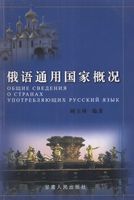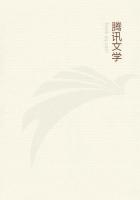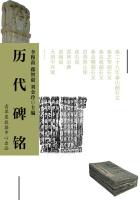The Australian and New Zealand Army Corps were to make good their landing on the AEgean coast, to the north of Gaba Tepe. They sailed from Mudros on the 24th of April, 1915, arrived off the coast of the peninsula at about half-past one in the morning of the 25th, and there, under a setting moon, in calm weather,, they went on board the boats which were to take them ashore. At about half-past three, the tows left the ships and proceeded in darkness to the coast.
Gaba Tepe is a steep cliff, covered with scrub where it is not too steep for roots to hold, and washed by deep water. About a mile to the north of it, there is a possible landing- place, and, north of that again, a long and narrow strip of beach between two little headlands. This latter beach cannot be seen from Gaba Tepe. The ground above these beaches is exceedingly steep, a sandy cliff. broken by two great gullies or ravines which run inland. All the ground, except in one patch in the southern ravine, where there is a sort of meadow of grass, is densely covered with scrub, mostly between two and three feet high. Inland from the beach, the land of the peninsula rises in steep, broken hills and spurs, with clumpsof pine, upon them, and dense undergrowths of scrub. The men selected for this landing were the 3rd Brigade of the Australian and New Zealand Army Corps, followed and supported by the 1st and 2nd Brigades.
The place selected for the landing was the southern beach, the nearer of the two to Gaba Tepe. This, like the other landing-places near Cape Helles, was strongly defended, and most difficult to approach. Large forces of Turks were entrenched there, well prepared. But, in the darkness of the early morning, after the moon had set, the tows stood a little farther to the north than they should have done, perhaps because some high ground to their left made a convenient steering-mark against the stars. The headed in towards the north beach between the two little headlands, where the Turks were not expecting them. However, they were soon seen, and very heavy independent rifle-fire was concentrated on them. As they neared the beach, "about one battalion of Turks" doubled along the land to intercept them. These men came from nearer Gaba Tepe, firing, as they ran, into the mass of boats, at short range. A great many men were killed in the boats; but the dead men"s oars were taken by survivors, and the boats forced into the shingle. The men jumped out, waded ashore, charged the enemy with the bayonet, and broke the Turk attack to pieces. The Turks scattered and were pursued; and now the steep, scrub-covered cliffs became the scene of the most desperate fighting.
The scattered Turks dropped into the scrub and dis- appeared. Hidden all over the rough cliffs, under every kind of cover, they sniped the beach, or ambushed the little parties of the 3rd Brigade which had rushed the landing. All over the broken hills there were isolated fights to the death, men falling into gullies and being bayoneted, sudden duels, point- blank, where men crawling through the scrub met each other, and life went to the quicker finger; heroic deaths, where some half- section which had lost touch were caught by ten times their strength, and charged, and died.
No man of our side knew that cracked and fissured jungle. Men broke through it on to machine-guns, or showed up on a crest and were blown to pieces, or leaped down from it into some sap or trench, to catch the bombs flung at them and hurl them at the thrower. Going, as they did, up cliffs through scrub- covered ground, they passed many hidden Turks, who were thus left to shoot them in the back or to fire down at the boats from perhaps only fifty yards away. It was only just light. Theirs was the first British survey of that wild country; only now, as it showed up clear, could they realize its difficulty. They pressed on up the hill; they dropped and fired and died; they drove the Turks back; they flung their packs away, wormed through the bush, and stalked the snipers from the flash. As they went, the words of their song supported them, the proud chorus of "Australia will be there," which the men on the torpedoed Southland sang as they fell in, expecting death.
Presently, as it grew lighter, the Turks" big howitzers began shelling the beach, and their field-guns, well hidden. opened on the transports, now busy disembarking the 1st and 2nd Brigades. They forced the transports to stand farther out to sea, and shelled the tows, as they came in, with shrapnel and high explosive. As the boats drew near the shore, every gun on Gaba Tope took them in flank, and the snipers concentrated on them from the shore. More and more Turks were coming up at the double to stop the attack up the bill. The fighting in the scrub became fiercer. Shells burst continually upon the beach, boats were sunk, men were killed in the water. The boatmen and beach working-parties were the unsung heroes of that landing. The boatmen came in with the tows, under fire, waited with them under intense and concentrated fire of every kind until they were unloaded, and then shoved off, put slowly back for more, and then came back again. The beach parties were wading to and from that shell-smitten beach all day, unloading, carrying ashore, and sorting the munitions and necessaries for many thousands of men. They worked in a strip of beach and sea some five hundred yards long by forty broad; and the fire directed on that strip was such that every box brought ashore had cheer more shells and not less than fifty bullets directed at it before it was flung on the sand.
More men came in and went on up the hill in support; butas yet there were no guns ashore, and the Turks" fire becameintenser. By ten o"clock, the Turks had had time to bring up enough men from their prepared positions to hold up the advance. Scattered parties of our men who had gone too far in the scrub were cut off and killed, for there was no thought of surrender in those marvellous young men; they were the flower of this world"s manhood, and died as they had lived, owning no master on this earth.
More and more Turks came up with big and field artillery; and now our attack had to hold on to what it had won, against more than twice its numbers. We had won a rough bow of ground, in which the beach represented the bowstring, the beach near Gaba Tepe the south end, and the hovel known as Fisherman"s Hut the north. Against this position, held by at most 8,000 of our men, who had had no rest and had fought hard since dawn, under every kind of fire, in a savage, rough country unknown to them, came an overwhelming army of Turks to drive them into the sea. For four hours, the Turks attacked and again attacked, with a terrific fire of artillery and waves of men in succession. They came fresh from superior positions, with many guns, to break a disorganized line of breathless men not yet "dug in." The guns of the ships opened on them, and the scattered units in the scrub rolled them back again and again by rifle and machine-gun fire, and by charge after counter-charge.
More of the Army Corps landed to meet the Turks; the fire upon the beach never slackened, and they came ashoreacross corpses and wrecked boats and a path in ruin with blasts and burning. They went up the cliff to their fellows under an ever-growing fire that lit the scrub and burned the wounded and the dead. Darkness came; but there was no rest nor lull. Wave after wave of Turks came out of the night, crying the proclamation of their faith; others stole up in the dark through the scrub, and shot or stabbed and crept back. or were seen and stalked and killed. Flares went up to light with their blue and ghastly glare the wild glens peopled by the enemy. Men worked at the digging-in till they dropped asleep upon the soil; more Turks charged, and they woke, and fired, and again dug. It was cruelly cold after the sun had gone, but there was no chance of warmth or proper food; to dig in and beat back the Turk or die were all that men could think of. In the darkness, among the blasts of the shells, men scrambled up and down the pathless cliffs, bringing up tins of water and boxes of cartridges, hauling up guns and shells, and bringing down the wounded.
The beach was heaped with wounded, placed as close under the cliff as might be, in such yard or so of dead ground as the cliff gave. The doctors worked among them, and doctors and wounded were blown to pieces, and the survivors sang their song of " Australia will be there." and cheered the newcomers still landing on the beach. Sometimes our fire seemed to cease; and then the Turk shells filled the night with their screams and blast and the pattering of their fragments.
With all the fury and the crying of the shells, and the cries and the shouts on the beach, the rattle of the small arms and the cheers and defiance up the hill, and the roar of the great guns far away, at sea or in the olive- groves, the night seemed in travail of a new age. All the blackness was shot with little spurts of fire, and streaks of fire, and malignant bursts of fire, and arcs and glows and crawling snakes of fire; and the moon rose, and looked down upon it all. In the fiercer hours of that night, shells fell in that contested mile of ground and on the beach beyond it at the rate of one a second, and the air whimpered with passing bullets, or fluttered with the rush of the big shells, or struck the head of the passer like a moving wall with the shock of the explosion.
All through the night the Turks attacked; and, in the early hours, their fire of shrapnel became so fierce that the Australians soon had not men enough to hold the line. Orders were given to fall back to a shorter line; but, in the darkness, uproar, and confusion, with many sections refusing to fall back. others falling back and losing touch, others losing their way in gully or precipice, and shrapnel hailing on all, as it had hailed for hours, the falling back was mistaken by some for an order to re-embark. Many men who had lost their officers and non-commissioned officers fell back to the beach, where the confusion of wounded men, boxes of stores, field dressing- stations, corpses, and the litter and the waste of battle had already blocked the going.
But, at this breaking of the wave of victory, this panting moment in the race, when some of the runners had lost their first wind, encouragement reached our men: a message came to the beach from Sir Ian Hamilton to say that help was coming, and that an Australian submarine had entered the Narrows and had sunk a Turkish transport off Chanak.
This word of victory, coming to men who thought for the moment that their efforts had been made in vain, had the effect of a fresh brigade. The men rallied back up the hill, bearing the news to the firing line; the new, constricted line was made good; and the rest of the night was never anything but continued victory to those weary ones in the scrub.
******
By the night of the second day, the Australian and NewZealand Army Corps had won and fortified their position.
John Masefield,in Gallipoli
General Notes.-Rccall what you know about the Anzacs. Have a map in front of you; look up the ?gean, Mudros, Gaba Tepe. A battalion is a body of infantry composed of several companies and forming part of a regiment. A brigade consists of several regiments. The Southland was transport conveying Australian troops from Alexandria to Mudros Bay, Lemnos Island; it was torpedoed on the 2nd of September, 1915. On board were the headquarters staff of General Legge"s Second Australian Division, Brigadier-General Linton, and the headquarters staff of the 6th Australian Infantry Brigade, the 21st (Victorian) Battalion,and one company of the 23rd Battalion. Volunteers went down into the stokehold and worked gallantly to keep the ship afloat, Brigadier-General Linton died afterwards from shock and exposure. Sir Ian Hamilton was the British General in command of the expedition. What is the main thought that arises in your mind after reading this graphic account of the Landing? How can the Spirit of Anzac be shown in times of peace?
Drawn by R.C.Fricke
The Australian War Memorial. Chanuk Bair Gallipoli.















